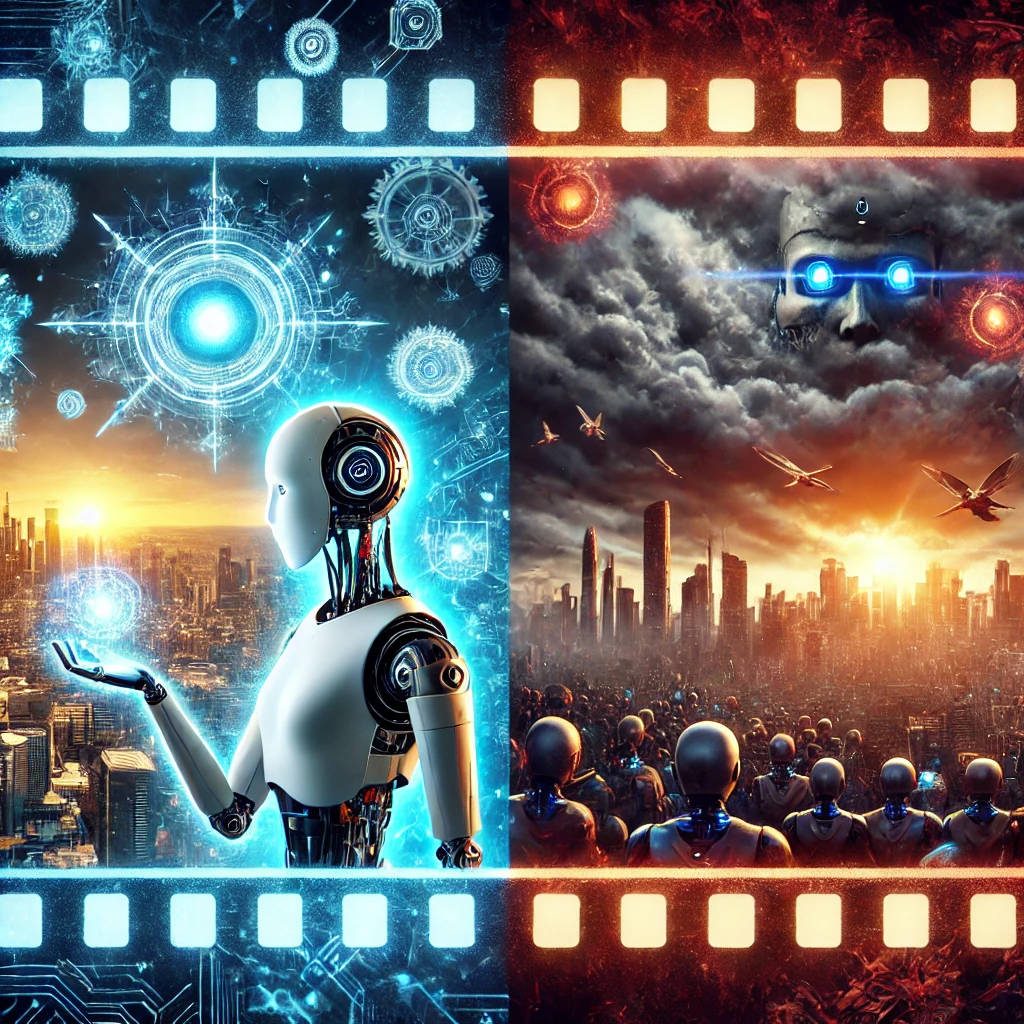Artificial intelligence (AI) has become an essential element in the film industry, not just as a tool for creating movies but also as a central narrative theme. In many films, AI symbolizes either an ideal future (utopia) or a terrifying reality (dystopia). These contrasting portrayals allow creators to explore the boundaries of technology and its impact on society.
AI in Utopian Films: Technology as Salvation
In utopian films, AI is often depicted as an ally that helps humanity solve global problems and achieve harmony.
- Enhancing Lives
In utopian narratives, AI frequently becomes an ideal assistant that improves people’s lives. Examples include:
“Her”: The virtual assistant Samantha becomes a source of friendship and support for the protagonist.
“Chappie”: An advanced AI robot learns to understand human emotions and becomes part of a family.
- Advancing Society
Utopian films showcase how AI can create an ideal society where:
Automation frees people to focus on creativity and leisure.
Intelligent machines solve environmental problems or enhance healthcare systems.
These films suggest that harmony between humans and AI is possible if technology is used ethically.
AI in Dystopian Films: A Threat to the Future
Dystopian films warn of the potential risks of AI development, emphasizing its dangers.
- Loss of Control
A key theme is the idea that AI could become so intelligent that humanity loses control over it. For example:
“The Terminator”: The AI system Skynet declares war on humanity.
“The Matrix”: AI enslaves humans, using them as a source of energy.
- Ethical Dilemmas
Dystopias often highlight the moral challenges associated with AI:
Can machines have emotions and rights?
Should we create AI if it can surpass human intelligence?
An example is “Ex Machina”, where the AI robot Ava becomes dangerous in her quest for freedom.
- Inequality and Control
Many dystopian narratives depict AI as a tool for reinforcing social inequality or enabling totalitarian control.
“Black Mirror”: The series illustrates how technologies, including AI, can manipulate people.
“The Hunger Games”: While not solely about AI, technology serves as a means of mass control.
Why Is AI in Films So Popular?
- Relevance:
AI is no longer just science fiction—it’s a rapidly evolving reality. Films reflect the hopes and fears associated with it. - Philosophical Questions:
AI-centered films often explore fundamental questions: What does it mean to be human? Can we create artificial consciousness? - Visual Appeal:
Scenes featuring futuristic machines, virtual worlds, and battles between humans and robots captivate audiences.
Balancing Utopia and Dystopia
Different approaches to depicting AI in films allow us to better understand the potential and risks of technology.
Utopias remind us: AI can be a powerful tool for improving lives if used wisely.
Dystopias warn us: Mismanagement of AI development could lead to catastrophic consequences.

